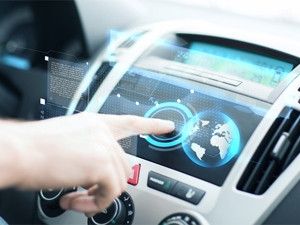
[PICURE-RIGHT]Connected car infotainment and telematics services will account for 98% of machine-to-machine (M2M) data traffic by 2021.
This is according to a new study from Juniper Research, which predicts in-vehicle infotainment services, such as Apple CarPlay and Android Auto, will generate large amounts of new cellular M2M data traffic over the next five years.
According to the study, data-intensive applications, such as Internet radio, music streaming applications and information services, will generate the equivalent of over 300 billion hours of music streaming per annum by 2021. Juniper says in-vehicle 4G SIMs will also provide 'over-the-air' service and subscription updates for drivers and passengers.
"The wider M2M market offers a reprieve from declining traditional voice and messaging revenues. Operators are now champing at the bit to capitalise on the growth of M2M," according to research author Sam Barker.
However, Juniper cautioned that for network operators to maximise their opportunity in the space, they will need to move away from merely providing connectivity and enablement, and additionally offer value-added services to their customers.
The report says M2M technology will further the development of autonomous driving systems in the future. Cellular vehicle-to-vehicle technology, enabled through M2M, is expected to be the cornerstone of the system over the coming years.
Consequently, operators will need to ensure their networks remain able to cope with the projected increases in data traffic, especially in urban areas, the report says. Future smart city systems, such as smart parking and smart intersections, will further drive data usage and the potential strain on networks.
The research also found that other, less data-hungry M2M modules would see significant increases in adoption across an array of key verticals, including healthcare, agriculture, smart metering and smart home automation.
Share